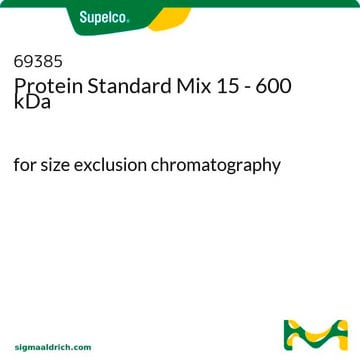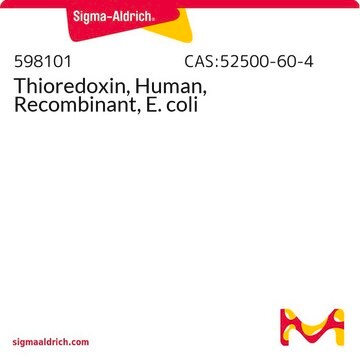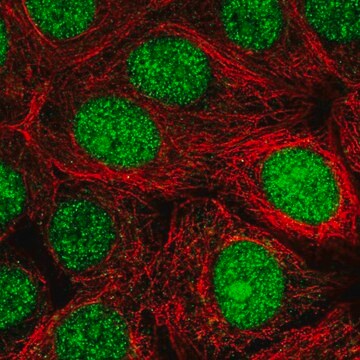MAB4100
Anti-MRP1 Antibody, clone QCRL-1
clone QCRL-1, Chemicon®, from mouse
Synonym(s):
Multidrug Resistance Protein-1
About This Item
Recommended Products
biological source
mouse
Quality Level
antibody form
purified immunoglobulin
antibody product type
primary antibodies
clone
QCRL-1, monoclonal
species reactivity
human
manufacturer/tradename
Chemicon®
technique(s)
flow cytometry: suitable
immunocytochemistry: suitable
immunohistochemistry (formalin-fixed, paraffin-embedded sections): suitable
western blot: suitable
isotype
IgG1
UniProt accession no.
shipped in
wet ice
Gene Information
human ... ABCC1(4363)
Related Categories
Specificity
phosphoglycoprotein overexpressed in various human multidrug resistant tumor cell lines
and tumors (Cole et al., 1992; Hipfner et al., 1994, 1996, 1999; Wright et al, 1998). Does not cross react with the mouse mrp1, or human MDR1, MDR3,
MRP2, MRP3, MRP4, MRP5 or MRP6 gene products.
Immunogen
Application
Immunocytochemistry: 1:20 - 1:50 on paraformaldehyde-fixed (0.5% in PBS) or 70% methanol-fixed cytospin preparations (Hipfner et al., 1999).
Immunohistochemistry on formalin-fixed paraffini-embedded sections following antigen retrieval by microwave heating in citrate (Wright, et al., 1998).
Flow cytometry: 1:20 dilution on cells fixed in 0.5% paraformaldehyde in PBS for 30 minutes, followed by anti-mouse FITC (block and wash with solution containing 0.1% Tween) (Hipfner, et al., 1994).
Immunoprecipitation (Hipfner, et al., 1994; 1996).
Optimal working dilutions must be determined by the end user.
Physical form
Storage and Stability
Legal Information
Not finding the right product?
Try our Product Selector Tool.
Storage Class Code
10 - Combustible liquids
WGK
WGK 2
Flash Point(F)
Not applicable
Flash Point(C)
Not applicable
Certificates of Analysis (COA)
Search for Certificates of Analysis (COA) by entering the products Lot/Batch Number. Lot and Batch Numbers can be found on a product’s label following the words ‘Lot’ or ‘Batch’.
Already Own This Product?
Find documentation for the products that you have recently purchased in the Document Library.
Our team of scientists has experience in all areas of research including Life Science, Material Science, Chemical Synthesis, Chromatography, Analytical and many others.
Contact Technical Service







